
The Majestic Dubai Desert Conservation Reserve
The Dubai Desert Conservation Reserve (DDCR) is a vast, protected area in the United Arab Emirates. This reserve is dedicated to preserving the unique desert ecosystem and its inhabitants. It spans over 225 square kilometers and offers a sanctuary for a variety of flora and fauna, including the Arabian Oryx, gazelles, and an array of bird species. Visitors to the DDCR can enjoy a range of activities that immerse them in the beauty and tranquility of the desert. Popular experiences include guided safaris, camel rides, and sandboarding. For those who enjoy stargazing, the clear night skies offer a breathtaking view of the stars. The reserve is also a haven for conservation efforts, with numerous programs aimed at protecting endangered species and restoring natural habitats. Tourists can learn about these initiatives through educational tours and interact with the dedicated conservationists working on-site. For a more luxurious experience, several high-end resorts offer exclusive access to the reserve. These resorts blend seamlessly into the landscape, providing guests with a unique opportunity to stay in the heart of the desert while enjoying world-class amenities.
Local tips in Dubai Desert Conservation Reserve
- Book your guided tours in advance, as they can fill up quickly, especially during peak tourist seasons.
- Wear comfortable, breathable clothing and protect yourself from the sun with hats and sunscreen.
- Bring plenty of water to stay hydrated, as the desert climate can be very dry.
- Opt for early morning or evening tours to avoid the midday heat and see more wildlife.
- Consider staying at one of the luxury resorts within the reserve for an immersive desert experience.
The Majestic Dubai Desert Conservation Reserve
The Dubai Desert Conservation Reserve (DDCR) is a vast, protected area in the United Arab Emirates. This reserve is dedicated to preserving the unique desert ecosystem and its inhabitants. It spans over 225 square kilometers and offers a sanctuary for a variety of flora and fauna, including the Arabian Oryx, gazelles, and an array of bird species. Visitors to the DDCR can enjoy a range of activities that immerse them in the beauty and tranquility of the desert. Popular experiences include guided safaris, camel rides, and sandboarding. For those who enjoy stargazing, the clear night skies offer a breathtaking view of the stars. The reserve is also a haven for conservation efforts, with numerous programs aimed at protecting endangered species and restoring natural habitats. Tourists can learn about these initiatives through educational tours and interact with the dedicated conservationists working on-site. For a more luxurious experience, several high-end resorts offer exclusive access to the reserve. These resorts blend seamlessly into the landscape, providing guests with a unique opportunity to stay in the heart of the desert while enjoying world-class amenities.
When is the best time to go to Dubai Desert Conservation Reserve?
Iconic landmarks you can’t miss
Burj Khalifa
Discover the iconic Burj Khalifa, the tallest building in the world, offering breathtaking views and a glimpse into Dubai's luxurious lifestyle.
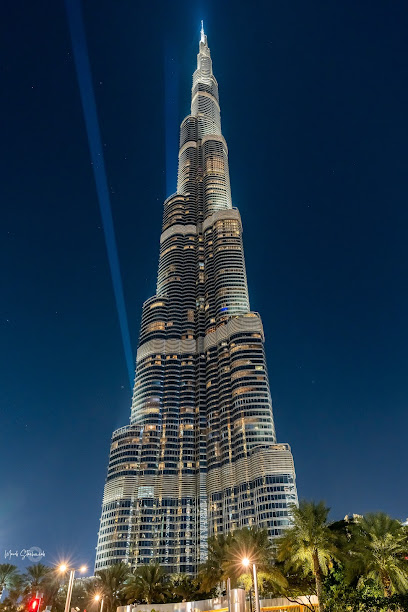
The Dubai Fountain
Experience the captivating beauty of The Dubai Fountain, where water dances to music in a breathtaking display against the iconic Burj Khalifa.
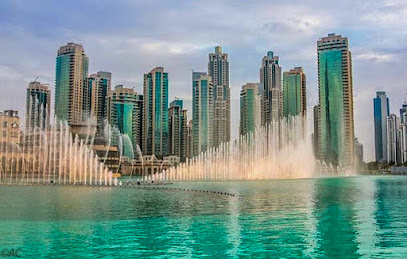
Dubai Miracle Garden
Discover the breathtaking beauty of Dubai Miracle Garden, where millions of flowers bloom in stunning arrangements, creating a floral wonderland in the heart of Dubai.
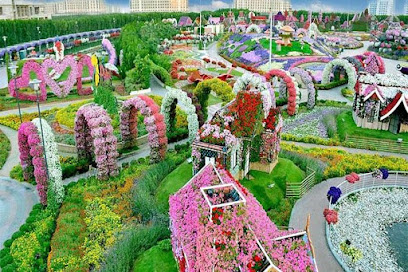
Burj Park
Experience the beauty of Burj Park in Dubai, a tranquil escape with breathtaking views of the Burj Khalifa and vibrant cultural events.
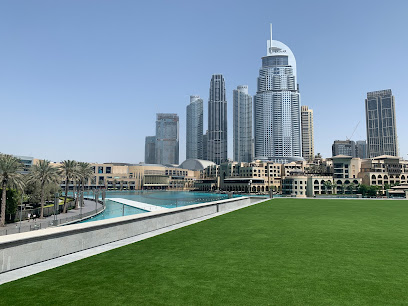
Burj Al Arab
Discover unparalleled luxury at Burj Al Arab, Dubai's iconic sail-shaped hotel, offering exquisite accommodations and world-class dining experiences.
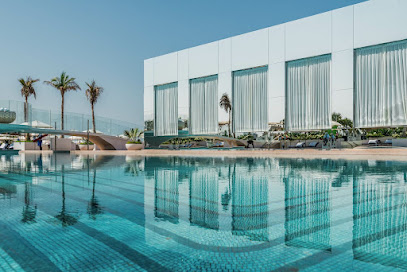
Mushrif Park
Experience the lush beauty of Mushrif Park, Dubai’s green oasis offering adventure, relaxation, and family-friendly activities in a serene environment.
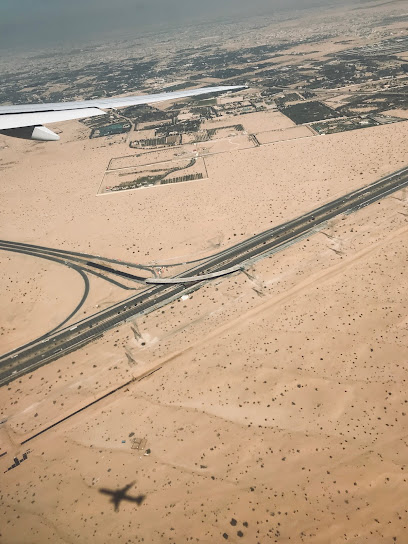
Dubai Dolphinarium
Explore the enchanting world of dolphins and marine life at Dubai Dolphinarium, a family-friendly attraction in the heart of Dubai's Creek Park.
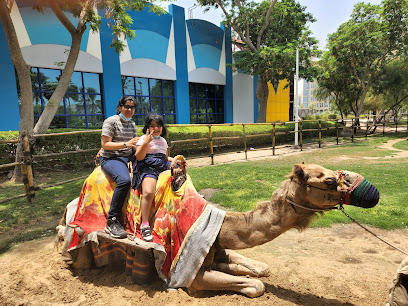
Al Fahidi Historical Neighbourhood
Discover the enchanting Al Fahidi Historical Neighbourhood, where Dubai's rich heritage meets vibrant culture and art in a captivating journey through time.
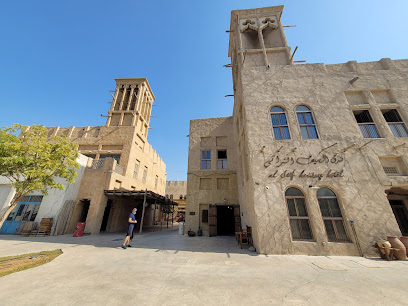
Creek Park
Explore the lush greenery and diverse attractions at Creek Park, Dubai's premier outdoor destination for families and nature lovers.
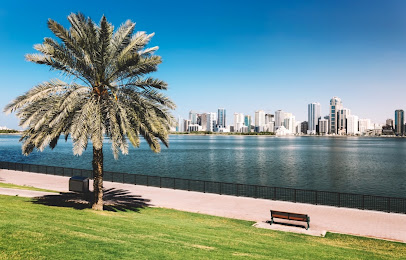
Dubai Safari Park
Experience the wild side of Dubai at Dubai Safari Park, a premier wildlife destination blending adventure, education, and conservation.
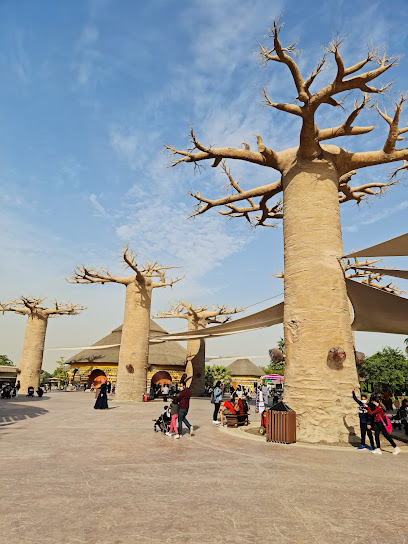
The Green Planet
Explore The Green Planet, Dubai's indoor rainforest filled with rich biodiversity and captivating wildlife experiences for all ages.
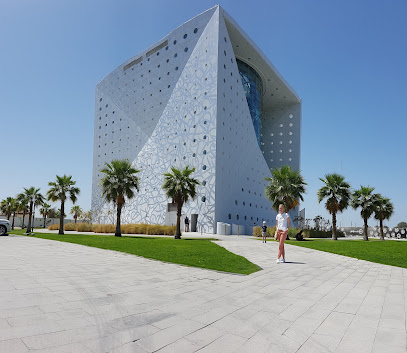
Love Lake - Al Qudra
Experience the romantic charm of Love Lake - Al Qudra, a serene oasis in Dubai perfect for nature lovers and couples seeking tranquility.
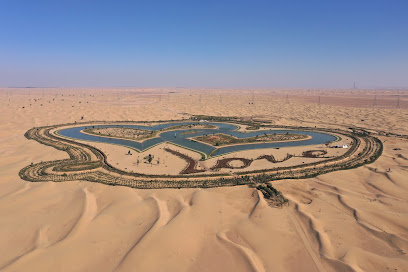
Adventure Planet Tourism - Dubai Desert Safari
Discover the thrill of Dubai Desert Safari with Adventure Planet Tourism, where adventure meets culture in the stunning Arabian sands.
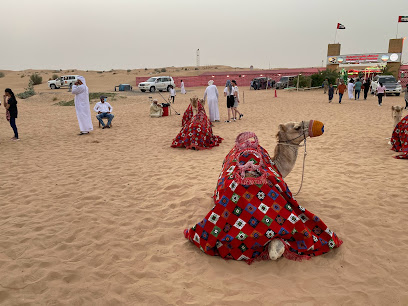
Wasit Wetland Centre
Discover the stunning Wasit Wetland Centre in Sharjah, a wildlife park where nature and education come together for an unforgettable experience.
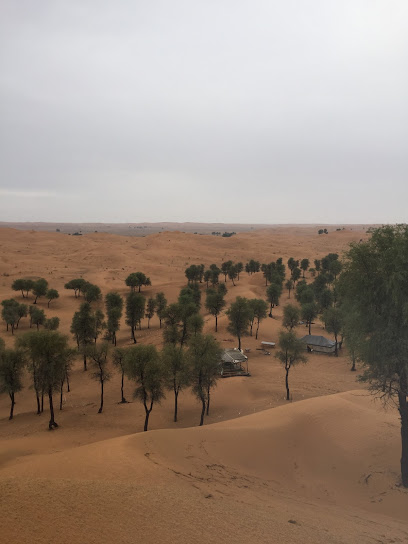
Al Qudra Duck and Swan Lake
Discover the serene beauty of Al Qudra Duck and Swan Lake, a natural oasis in Dubai perfect for birdwatching and relaxation.
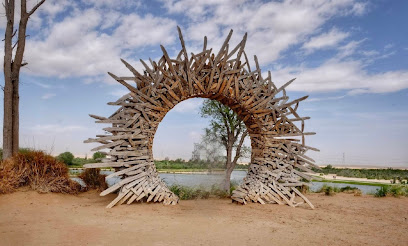
Unmissable attractions to see
Burj Park
Discover Burj Park, a tranquil retreat in Downtown Dubai, offering stunning views of Burj Khalifa amidst lush landscapes and vibrant events.
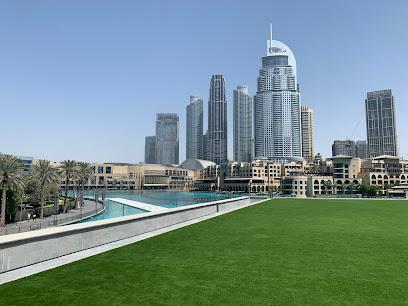
Dubai Dolphinarium
Experience the magic of marine life at Dubai Dolphinarium, where captivating dolphin shows and interactive encounters await every visitor.
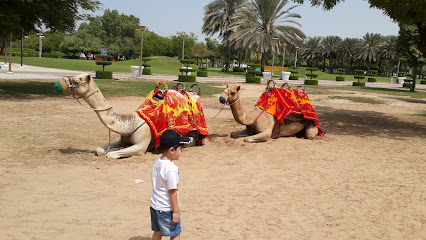
Emirates Golf Club
Discover the Emirates Golf Club, Dubai's premier golfing destination, featuring breathtaking courses, luxurious amenities, and stunning views of the skyline.
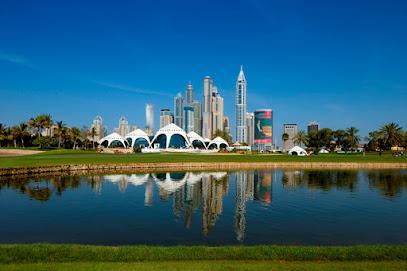
The Sevens Stadium
Experience the thrill of sports and entertainment at The Sevens Stadium, Dubai's premier venue for unforgettable events.
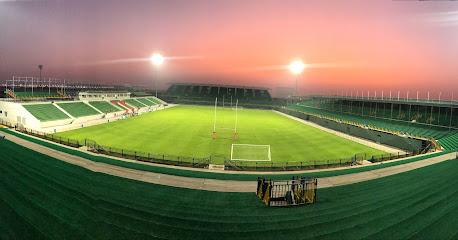
The Storm Coaster
Unleash your inner thrill-seeker at The Storm Coaster, a spectacular roller coaster experience in Dubai with breathtaking views and adrenaline-pumping excitement.
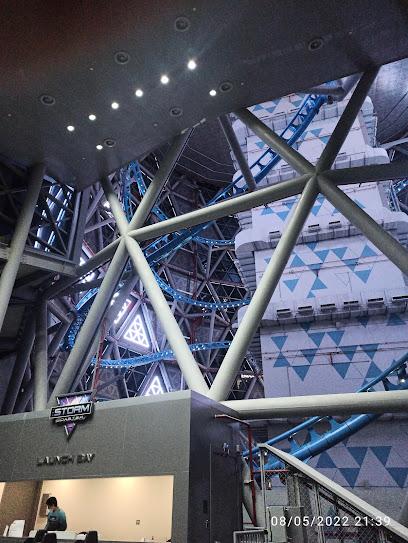
Mirzam Chocolate Makers Factory & Store
Experience the art of chocolate-making at Mirzam Chocolate Makers in Dubai, where every bite is a journey into the world of exquisite flavors.
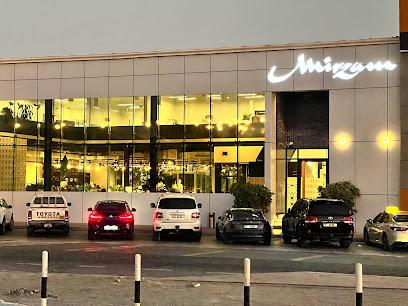
Al Marmoom Heritage Village
Explore Al Marmoom Heritage Village, a cultural gem in the UAE offering camel racing, traditional crafts, and immersive Bedouin experiences.
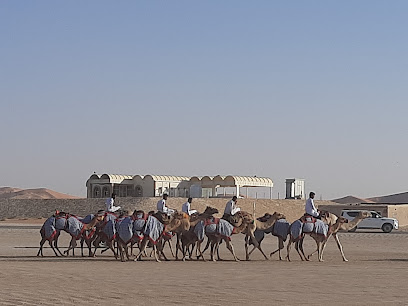
3D Blacklight Minigolf Dubai
Discover the vibrant and thrilling world of 3D Blacklight Minigolf in Dubai's Jumeirah Beach Residence, where adventure meets imagination.
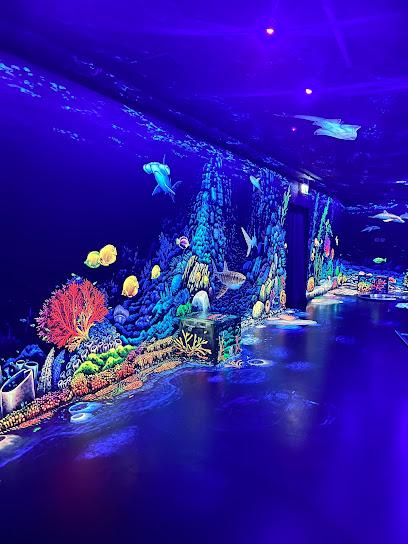
Desert Safari Dubai
Explore the breathtaking landscapes of the Arabian desert with Desert Safari Dubai, where adventure meets culture in a thrilling experience.
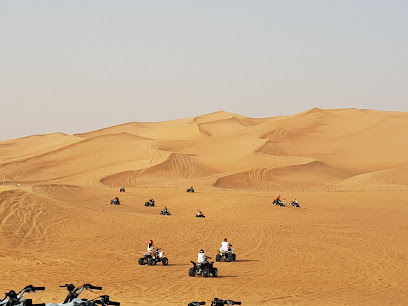
Infinity des Lumières
Explore the captivating world of digital art at Infinity des Lumières, an immersive museum experience in the heart of Dubai Mall.
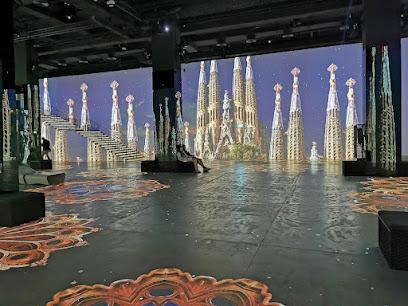
Camelicious
Discover the unique flavors and health benefits of camel milk at Camelicious, Dubai's premier dairy farm and family-friendly destination.
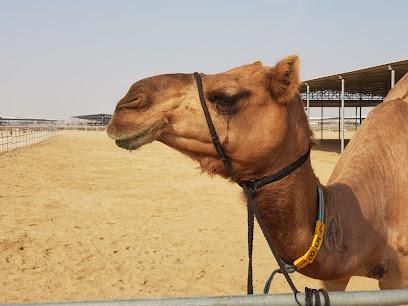
Unique Desert Tourism LLC
Discover the magic of the Arabian desert with Unique Desert Tourism LLC, your gateway to unforgettable desert adventures in Dubai.
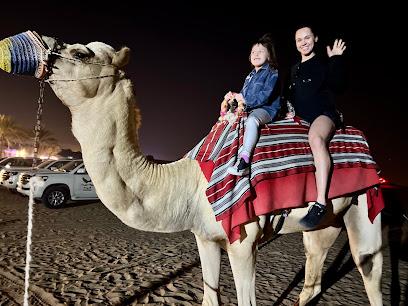
Ekart Zabeel
Experience the thrill of indoor go-karting at Ekart Zabeel, Dubai's premier racing destination for families and adrenaline junkies alike.
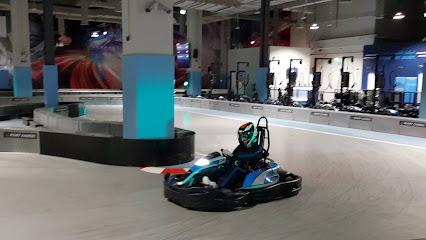
Cinemacity Fountain Views
Discover Cinemacity Fountain Views, where cinematic magic meets breathtaking views of Dubai's iconic skyline.
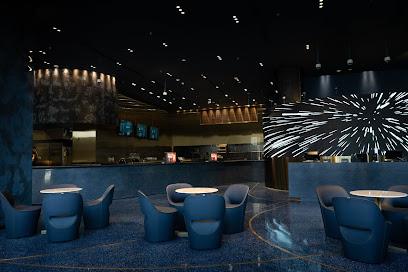
Sahara Amusement صحارى للترفيه
Experience thrilling go-karting, ATV adventures, and paintball action at Sahara Amusement in Sharjah - a desert paradise for adventure lovers.
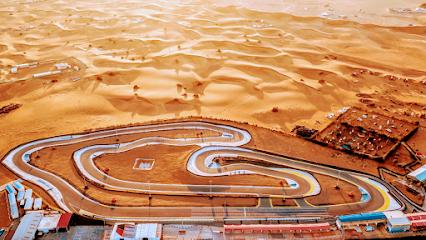
Essential places to dine
The Cheesecake Factory
Experience the best of American cuisine with stunning views at The Cheesecake Factory in Dubai's Jumeirah Beach Residence.
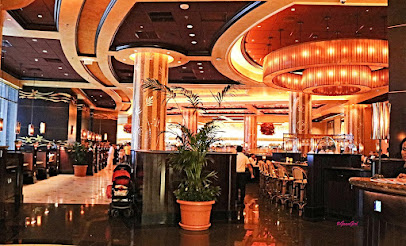
Social House
Experience global flavors at Social House in Downtown Dubai – where culinary creativity meets modern elegance.
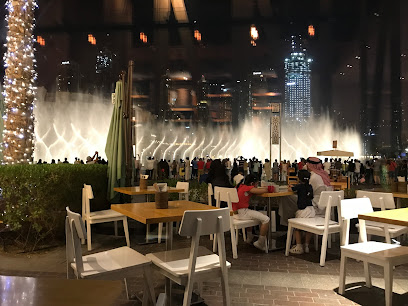
Bu Qtair Restaurant
Experience authentic Dubai seafood at Bu Qtair Restaurant, where fresh catches meet traditional flavors in a stunning harbor setting.
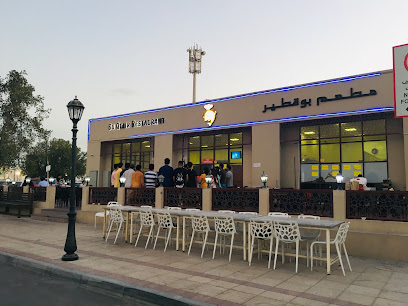
The Farm Restaurant, Al Barari
Discover culinary excellence surrounded by nature at The Farm Restaurant in Al Barari - Dubai's premier destination for health-conscious dining.
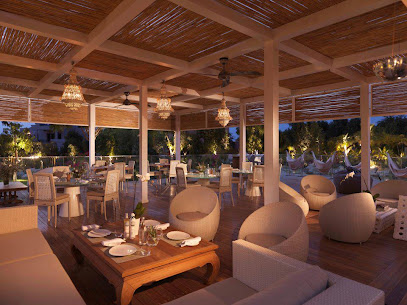
THE PODS
Discover culinary artistry at THE PODS on Bluewaters Island - where exquisite flavors meet stunning views in Dubai's vibrant dining scene.
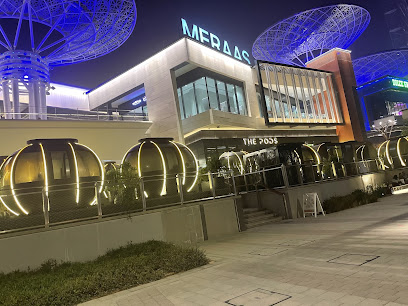
Atmosphere Burj Khalifa
Discover luxury dining at its finest atop Burj Khalifa with stunning views and exquisite cuisine at Atmosphere.
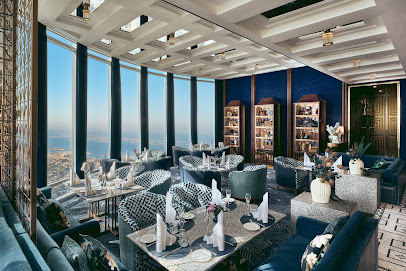
Kaleidoscope
Experience a world of flavors at Kaleidoscope – Dubai's premier buffet restaurant located in the stunning Atlantis The Palm.
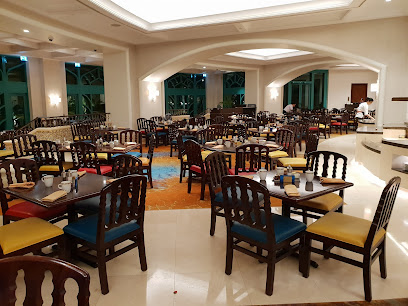
Al Dawaar Revolving Restaurant
Discover breathtaking views and exquisite dining at Al Dawaar Revolving Restaurant in Dubai - an unforgettable culinary experience awaits.
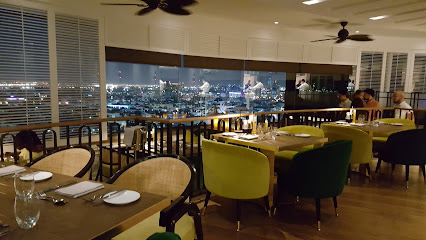
Al Hadheerah
Experience authentic Middle Eastern cuisine under the stars at Al Hadheerah in Dubai's stunning desert resort.
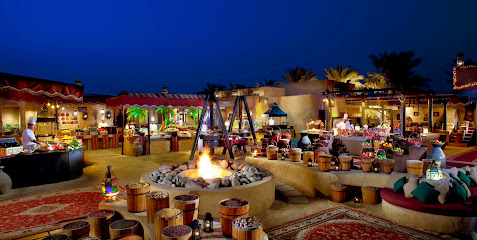
Pierchic
Discover culinary excellence at Pierchic: Dubai's premier Italian fine dining experience with breathtaking views.
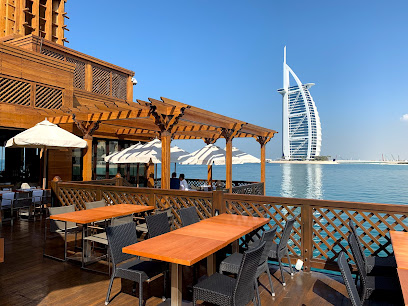
Dinner In The Sky
Elevate your dining experience at Dinner In The Sky - where gourmet cuisine meets breathtaking aerial views in Dubai.
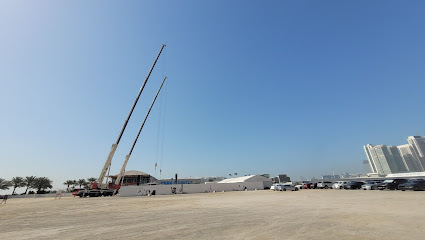
Al Maha, a Luxury Collection Desert Resort & Spa, Dubai
Discover unparalleled luxury at Al Maha Resort & Spa in Dubai's breathtaking desert landscape - where opulence meets nature.

Ossiano
Discover Ossiano: A stunning underwater dining experience serving exquisite European cuisine at Atlantis, The Palm in Dubai.
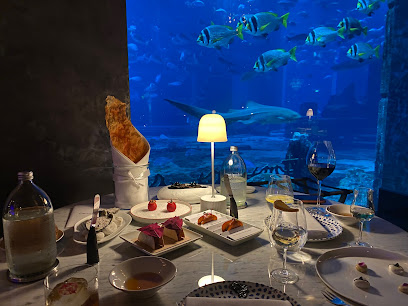
Dubai Desert Conservation Reserve
Discover the stunning landscapes and rich biodiversity of Dubai Desert Conservation Reserve - a true oasis of nature just outside Dubai.
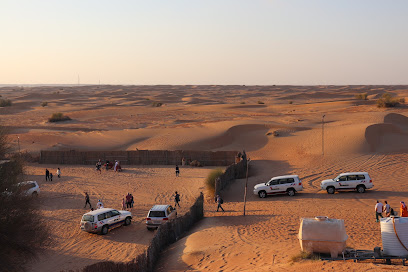
Zagol Restaurant
Experience the essence of Ethiopia through authentic flavors at Zagol Restaurant in Dubai's Al Karama district.
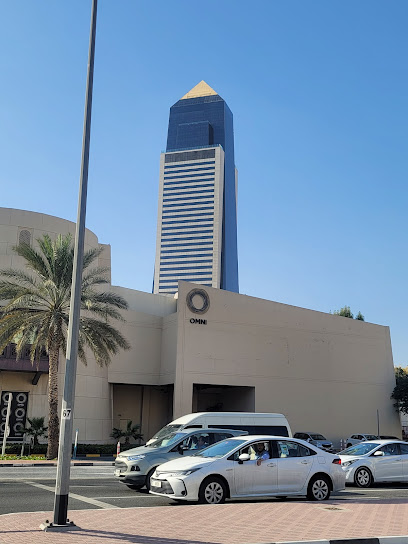
Markets, malls and hidden boutiques
Dubai Mall
Discover the ultimate shopping, dining, and entertainment experience at Dubai Mall, the largest mall in the world, located in the vibrant heart of Downtown Dubai.

Mall of the Emirates
Experience luxury shopping, thrilling entertainment, and exquisite dining at Mall of the Emirates, the ultimate destination in Dubai.

City Centre Deira
Discover the ultimate shopping experience at City Centre Deira, Dubai's vibrant retail destination with diverse dining and entertainment options.
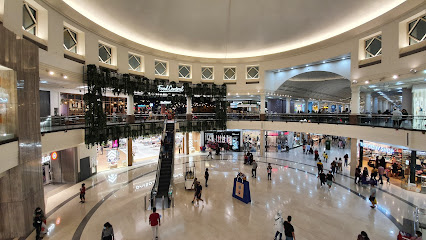
Ibn Battuta Mall
Explore the cultural richness and shopping extravaganza at Ibn Battuta Mall, one of Dubai's largest and most unique shopping destinations.
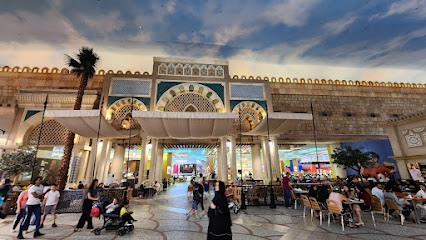
Dubai Festival City Mall
Experience luxury shopping, diverse dining, and exciting entertainment at Dubai Festival City Mall, the ultimate destination for tourists in Dubai.
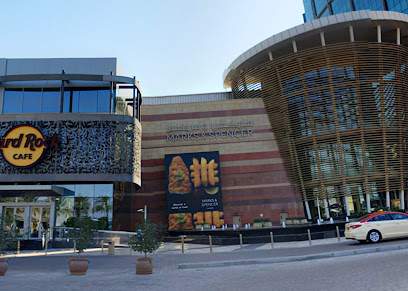
Dubai Marina Mall
Discover Dubai Marina Mall: A shopper's paradise with stunning marina views, diverse eateries, and unparalleled entertainment options.
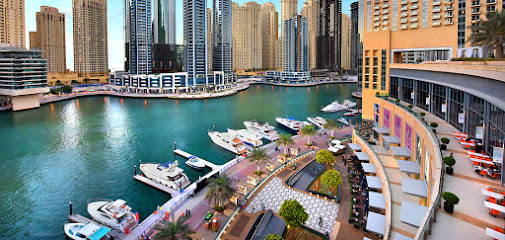
City Walk
Explore City Walk, Dubai's premier destination for shopping, dining, and art in a vibrant urban setting.
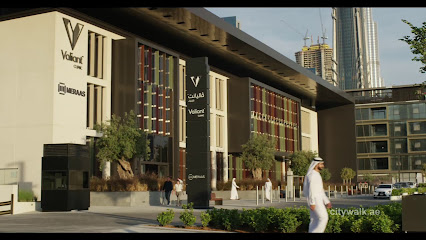
Waterfront Market
Discover the rich flavors and vibrant culture of Dubai at the Waterfront Market, a must-visit destination for food lovers and tourists alike.
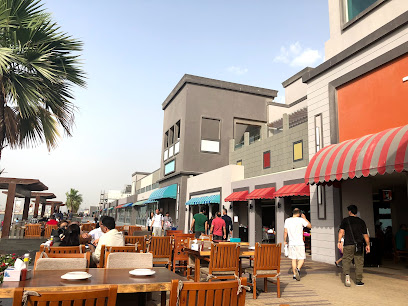
Al Ghurair Centre
Explore Al Ghurair Centre, Dubai's premier shopping mall with diverse retail, dining, and entertainment options in a modern atmosphere.
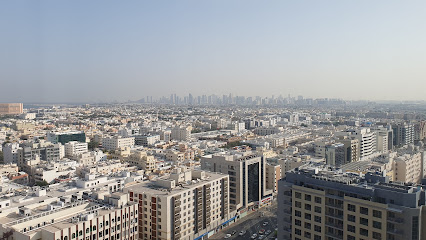
Dubai Gold Souk
Explore the dazzling Dubai Gold Souk, a vibrant bazaar filled with exquisite gold jewelry and a taste of Arabian culture in the heart of Deira.
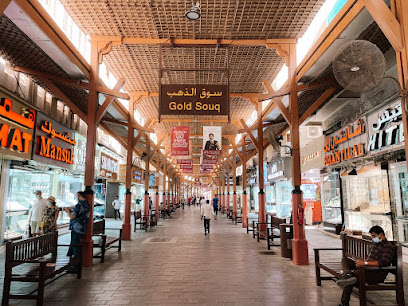
Meena Bazar Burdubai
Discover the lively Meena Bazar in Burdubai, a vibrant marketplace filled with shopping delights, local flavors, and cultural experiences in the heart of Dubai.
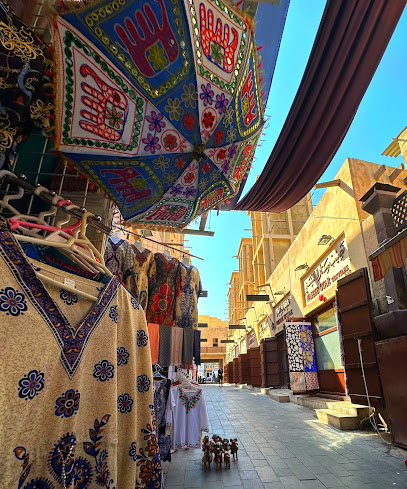
The Springs Souk
Explore the vibrant Springs Souk in Dubai, where shopping, dining, and leisure blend seamlessly in a modern oasis of culture and experience.
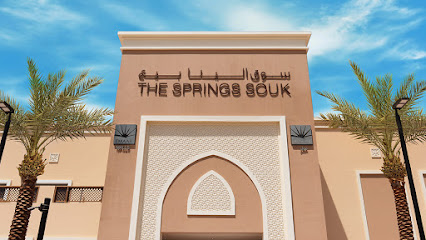
Dubai Desert Safari
Experience the thrill of dune bashing and cultural delights in the mesmerizing landscapes of the Dubai Desert Safari.
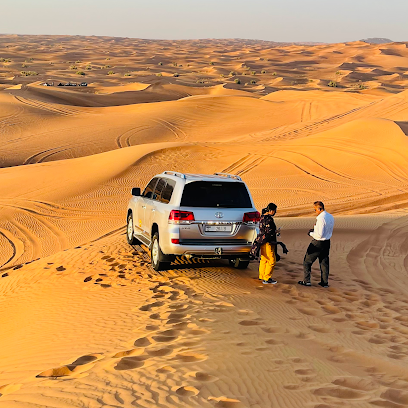
X Desert Safari Dubai - Al Marjan Desert Camp
Discover adventure and culinary delights at X Desert Safari Dubai - Al Marjan Desert Camp, a unique desert experience in Dubai.
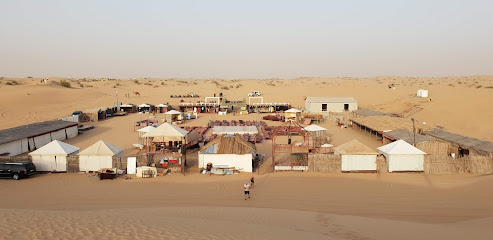
Al Qudra Lake
Experience the tranquil beauty of Al Qudra Lake, a serene oasis in the Dubai desert, perfect for picnics, birdwatching, and breathtaking sunsets.
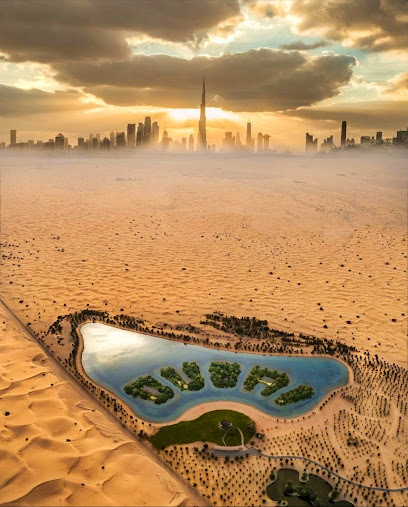
Essential bars & hidden hideouts
Barasti Beach
Discover the lively Barasti Beach in Dubai, where sun, fun, and flavorful dining come together for an unforgettable beach experience.
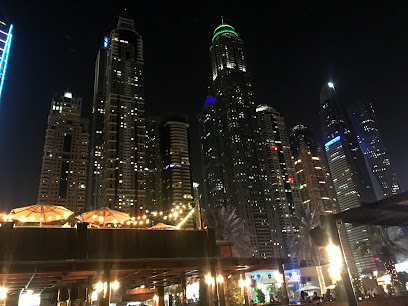
The Irish Village, Al Garhoud
Discover the lively spirit of Ireland at The Irish Village, a vibrant pub in Dubai's Al Garhoud offering authentic food, drinks, and entertainment.
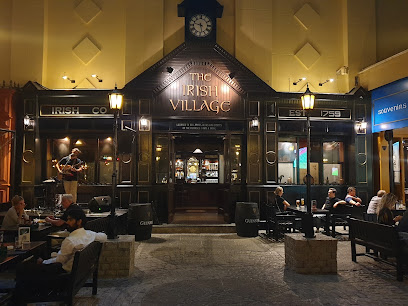
Zero Gravity Dubai
Experience the vibrant energy of Zero Gravity Dubai, a beachfront restaurant and bar with stunning views, delicious cuisine, and exciting nightlife.
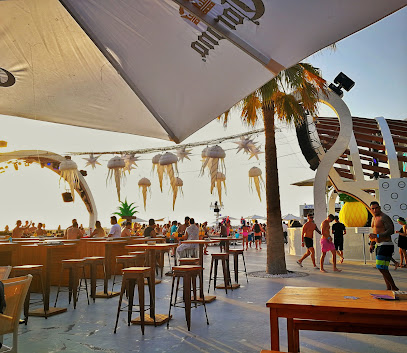
Bla Bla Dubai
Experience the vibrant atmosphere of Bla Bla Dubai, where beach relaxation meets lively nightlife in the heart of Jumeirah Beach Residence.
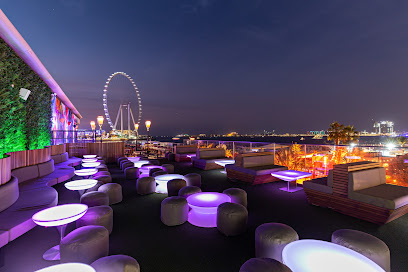
Level 43 Sky Lounge
Experience luxury and breathtaking views at Level 43 Sky Lounge, Dubai's premier rooftop destination for unforgettable evenings.
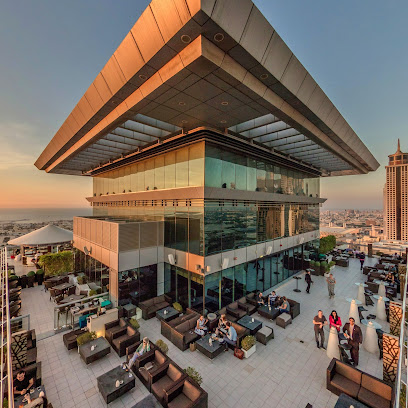
Jack's Bar & Grill
Experience the ultimate dining adventure at Jack's Bar & Grill in Dubai International Airport, where delicious grilled favorites meet refreshing drinks.
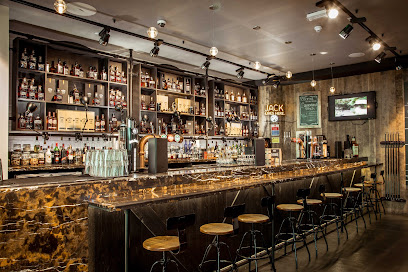
Pure Sky Lounge & Dining
Discover the luxurious Pure Sky Lounge & Dining, a rooftop gem offering stunning views, exquisite cuisine, and an unforgettable nightlife experience in Dubai.
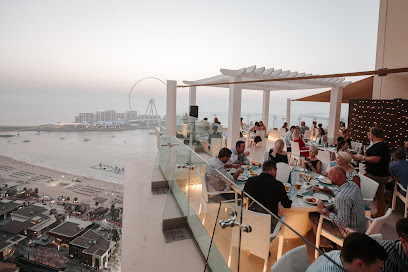
The Penthouse Dubai | Rooftop lounge & Nightclub at Five Palm Jumeirah
Discover luxury at The Penthouse in Dubai, a rooftop lounge and nightclub offering stunning views, exquisite cocktails, and an unforgettable nightlife experience.
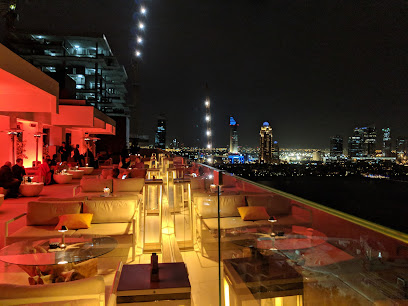
Bar Du Port Dubai
Experience the exquisite flavors and stunning views at Bar Du Port Dubai, a premier dining destination in the heart of Dubai Marina.
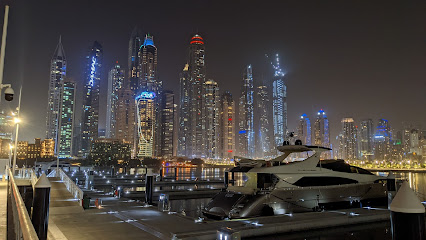
Jetty Lounge
Experience luxury and relaxation at Jetty Lounge, a premier bar and family restaurant in Dubai Marina offering exquisite drinks and gourmet dining.
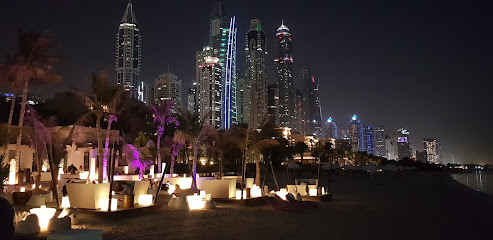
Goose Island Tap House | FIVE Jumeirah Village
Discover the lively Goose Island Tap House in Jumeirah Village, Dubai, where craft beers meet delicious cuisine in a vibrant atmosphere.
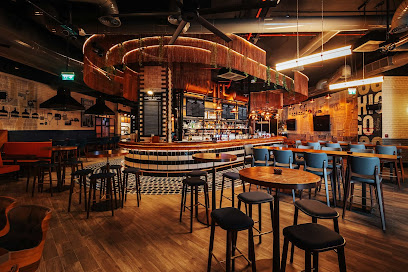
Bliss Lounge
Experience luxury and breathtaking views at Bliss Lounge in Sheraton Jumeirah Beach Resort, Dubai's premier destination for relaxation and vibrant nightlife.
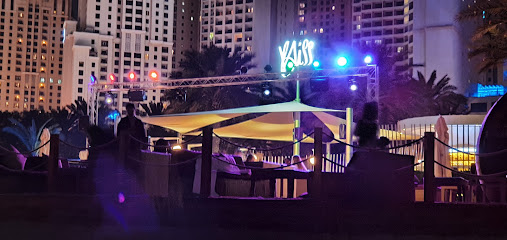
Wavebreaker
Experience culinary delights at Wavebreaker, a beachfront grill in Dubai Marina, where exquisite flavors meet stunning sea views.
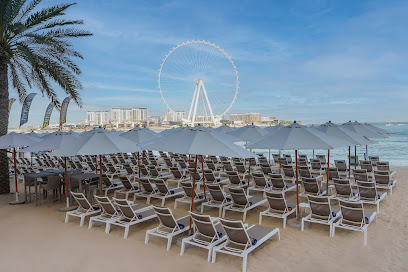
Cielo Sky Lounge
Experience the breathtaking views of Dubai Creek at Cielo Sky Lounge, where exceptional service meets a vibrant atmosphere and gourmet cuisine.
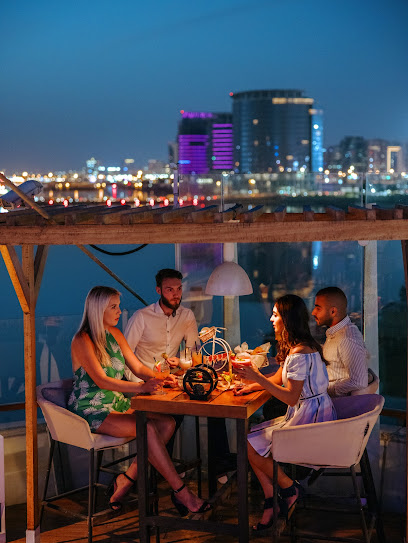
Local Phrases about Dubai Desert Conservation Reserve
-
- Helloمرحبا
[marhaba] - Goodbyeوداعا
[wadaea] - Yesنعم
[naam] - Noلا
[laa] - Please/You're welcomeمن فضلك/على الرحب والسعة
[min fadlik/ala alrahb wasa'a] - Thank youشكرا لك
[shukran lak] - Excuse me/Sorryعذرا
[aathiraa] - How are you?كيف حالك؟
[kayf halak?] - Fine. And you?بخير. وأنت؟
[bikhayr. wa'ant?] - Do you speak English?هل تتحدث الإنجليزية؟
[hal tatahadath al'iinjilizia?] - I don't understandأنا لا أفهم
[ana la afham]
- Helloمرحبا
-
- I'd like to see the menu, pleaseأرغب في رؤية القائمة، من فضلك
[urghab fi ru'ya alqa'ima, min fadlik] - I don't eat meatأنا لا آكل اللحم
[ana la aakul allahm] - Cheers!في صحتك!
[fi sahtak] - I would like to pay, pleaseأود أن أدفع، من فضلك
[awad an adfa', min fadlik]
- I'd like to see the menu, pleaseأرغب في رؤية القائمة، من فضلك
-
- Help!النجدة!
[alnajdah!] - Go away!انصرف!
[ansarf!] - Call the Police!اتصل بالشرطة!
[atassil bialshurta!] - Call a doctor!اتصل بالطبيب!
[atassil bialtabib!] - I'm lostلقد ضللت الطريق
[laqad dalalt altariq] - I'm illأنا مريض
[ana mareed]
- Help!النجدة!
-
- I'd like to buy...أرغب في شراء...
[urghab fi shira...] - I'm just lookingأنا فقط أتطلع
[ana faqat attala] - How much is it?بكم؟
[bi kam?] - That's too expensiveهذا غالي جدا
[hadha ghali jiddan] - Can you lower the price?هل يمكنك خفض السعر؟
[hal yumkinuk khaafd alsaeer?]
- I'd like to buy...أرغب في شراء...
-
- What time is it?كم الساعة؟
[kam alsaeah?] - It's one o'clockالواحدة
[alwahidah] - Half past (10)العاشر والنصف
[al'ashir walnusf] - Morningصباح الخير
[sabah alkheir] - Afternoonمساء الخير
[masa' alkheir] - Eveningمساء
[masa'] - Yesterdayأمس
[ams] - Todayاليوم
[alyawm] - Tomorrowغدا
[ghadan] - 1واحد
[wahid] - 2اثنان
[ithnan] - 3ثلاثة
[thalatha] - 4أربعة
[arba'a] - 5خمسة
[khamsa] - 6ستة
[sitta] - 7سبعة
[sab'a] - 8ثمانية
[thamania] - 9تسعة
[tisa'a] - 10عشرة
[ashra]
- What time is it?كم الساعة؟
-
- Where's a/the...?أين...
[ayn...] - What's the address?ما هو العنوان؟
[ma hu al'anaan?] - Can you show me (on the map)?هل يمكنك أن تريني (على الخريطة)؟
[hal yumkinuk an tureeni (ala alkharitah)?] - When's the next (bus)?متى يأتي (الحافلة) القادمة؟
[mata yaati (alhafilat) alqadimah?] - A ticket (to ....)تذكرة (إلى ...)
[tadhkirah (ila ...)]
- Where's a/the...?أين...
History of Dubai Desert Conservation Reserve
-
The Dubai Desert Conservation Reserve (DDCR) is located within the Arabian Desert, which has been shaped over millions of years by natural forces. The landscape consists of vast sand dunes, gravel plains, and occasional rocky outcrops. The formation of these dunes is a result of wind erosion and sediment deposition, creating a unique and dynamic environment.
-
The Arabian Desert, including the area now known as the DDCR, has been inhabited by Bedouin tribes for thousands of years. These nomadic peoples adapted to the harsh environment, developing unique cultural practices and survival techniques. Their presence is evidenced by archaeological findings, including stone tools and ancient campsites.
-
The DDCR is home to a variety of plant and animal species adapted to desert life. Historically, the Arabian Oryx, a species of antelope, roamed these deserts until they were driven to near extinction by the mid-20th century. Conservation efforts have since reintroduced the Arabian Oryx to the reserve, making it a symbol of successful wildlife conservation.
-
The Dubai Desert Conservation Reserve was officially established in 2003, covering an area of 225 square kilometers. This initiative was spearheaded by Dubai's government and various environmental organizations to protect the region's unique ecosystem and heritage. The reserve aims to balance conservation efforts with sustainable tourism, providing educational and recreational opportunities.
-
Since its establishment, the DDCR has been the site of numerous conservation projects. These include the reintroduction of native species, habitat restoration, and scientific research. The reserve employs a comprehensive management plan to ensure the protection of its biodiversity, involving local communities and international experts in its efforts.
-
The DDCR holds cultural significance for the people of the UAE, as it represents a connection to their Bedouin heritage. Traditional activities such as falconry, camel riding, and desert camping are celebrated within the reserve. These practices are not only preserved but also shared with visitors, providing insights into the region's rich cultural tapestry.
-
Today, the DDCR is a popular destination for eco-tourists and adventure seekers. The reserve offers a range of activities, including guided safaris, wildlife tours, and stargazing experiences. These activities are designed to be environmentally sustainable, ensuring that the natural beauty and integrity of the desert are maintained for future generations.
Dubai Desert Conservation Reserve Essentials
-
Dubai Desert Conservation Reserve is located approximately 45 kilometers southeast of Dubai. The nearest international airport is Dubai International Airport (DXB). From the airport, you can hire a taxi, use a ride-sharing service, or book a transfer through a tour operator. The journey typically takes around 45 minutes by road. Many tour operators offer guided excursions to the reserve, which include transportation.
-
Within Dubai, taxis and ride-sharing services such as Uber and Careem are readily available and can take you to the Dubai Desert Conservation Reserve. For those looking for a more immersive experience, several tour operators provide 4x4 vehicle safaris that include transportation from your hotel. Public transport does not operate directly to the reserve, so private transportation or organized tours are the best options.
-
The official currency in the United Arab Emirates is the UAE Dirham (AED). Credit cards are widely accepted in Dubai and at many of the tour operators, hotels, and restaurants associated with the Dubai Desert Conservation Reserve. It is advisable to carry some cash for smaller establishments and tips. ATMs are plentiful in Dubai but may not be available within the reserve itself.
-
Dubai Desert Conservation Reserve is generally very safe for tourists. However, standard precautions should be taken. Avoid traveling alone into the desert without a guide, and always stay with your tour group. Ensure you have sufficient water, sun protection, and suitable clothing for the desert environment. Be cautious of your belongings in busy tourist areas within Dubai, but crime rates targeting tourists are low.
-
In case of an emergency, dial 999 for police assistance or 998 for ambulance services. It is recommended to have travel insurance that covers medical emergencies. Tour operators typically have first-aid kits and basic emergency protocols in place. For minor health issues, there are pharmacies available in Dubai. Always inform your tour guide immediately if you feel unwell or encounter any issues.
-
Fashion: Do wear light, breathable clothing suitable for hot weather, and consider long sleeves and hats for sun protection. Avoid overly revealing attire. Religion: Do respect local customs and traditions. While the reserve itself is quite liberal, Dubai as a whole adheres to Islamic customs. Public Transport: Do use taxis or ride-sharing services, as public transport does not serve the reserve. Greetings: Do greet people with a handshake, but be mindful that some locals may prefer not to shake hands with the opposite gender. Eating & Drinking: Do try the local cuisine if offered, and always drink plenty of water to stay hydrated. Avoid eating or drinking in public during daylight hours in the month of Ramadan.
-
To experience the Dubai Desert Conservation Reserve like a local, consider booking an overnight camping experience to witness the desert's beauty at night. Engage with Bedouin guides to learn about the traditional way of life in the desert. Don’t miss the chance to try traditional Emirati dishes such as Harees and Machboos, often included in desert tours. For a unique wildlife experience, take a guided nature walk to observe native species like the Arabian Oryx and sand gazelles.
Trending Landmarks in Dubai Desert Conservation Reserve
-
Burj Khalifa
-
The Dubai Fountain
-
Dubai Miracle Garden
-
Burj Park
-
Burj Al Arab
-
Mushrif Park
-
Dubai Dolphinarium
-
Al Fahidi Historical Neighbourhood
-
Creek Park
-
Dubai Safari Park
-
The Green Planet
-
Love Lake - Al Qudra
-
Adventure Planet Tourism - Dubai Desert Safari
-
Wasit Wetland Centre
-
Al Qudra Duck and Swan Lake
Nearby Cities to Dubai Desert Conservation Reserve
-
Things To Do in Sharjah
-
Things To Do in Ajman
-
Things To Do in Al Ain
-
Things To Do in Umm Al Quwain
-
Things To Do in Fujairah
-
Things To Do in Khor Fakkan
-
Things To Do in Dibba Al-Fujairah
-
Things To Do in Ras Al Khaimah
-
Things To Do in Sohar
-
Things To Do in Abu Dhabi
-
Things To Do in Khasab
-
Things To Do in Ibri
-
Things To Do in Rustaq
-
Things To Do in Bahla
-
Things To Do in Nizwa












